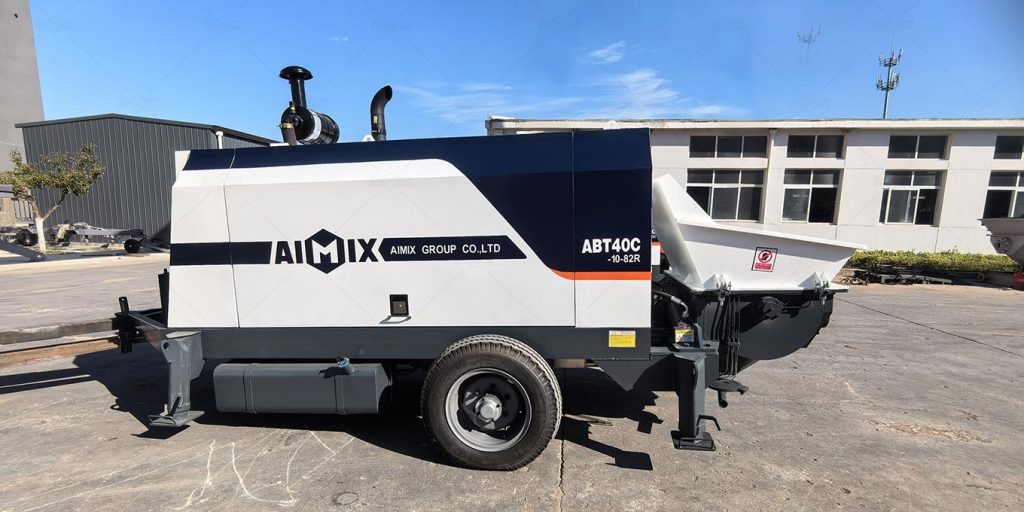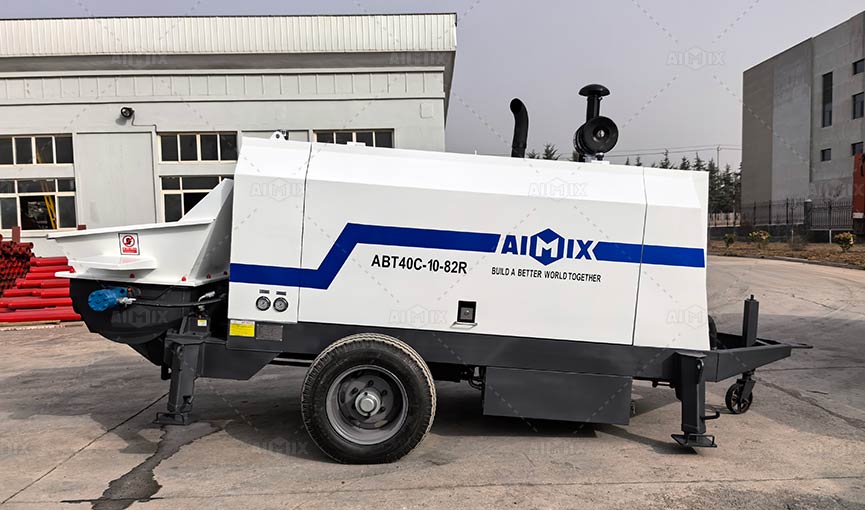In the realm of construction, the tools we use can significantly influence the efficiency and effectiveness of our projects. Among these, the trailer pump stands out as a versatile and indispensable piece of equipment. Understanding its capabilities, particularly in terms of height, can help contractors and builders make informed decisions. This article delves into the mechanics of trailer concrete pump for sale, their specifications, and the factors that determine the maximum height they can effectively manage. By the end, you’ll have a clearer picture of how these pumps operate in high-rise construction.
Understanding Trailer Pumps
Trailer pumps are specialized machines designed for transporting and pumping concrete to various construction sites. Their mobility and flexibility make them suitable for a range of projects, from residential builds to towering skyscrapers. Equipped with powerful engines and advanced pumping technology, these pumps can navigate challenging terrains and deliver concrete precisely where it’s needed. However, their performance is not solely dependent on the machine itself; several factors play a critical role in determining how high they can effectively pump concrete.

Specifications of Trailer Pumps
To grasp the pumping capabilities of trailer pumps, one must first understand their technical specifications. Generally, these pumps are rated based on their maximum output, which is often measured in cubic yards per hour. Most trailer pumps can handle outputs ranging from 20 to 80 cubic yards per hour. However, the height of the pour is equally important and can vary significantly based on the model and configuration.
Pressure Ratings
Another critical specification is the pressure rating, which indicates the pump’s ability to maintain flow at a given height. For instance, a mobile pump concrete with a pressure rating of 1,000 psi can typically deliver concrete up to 200 feet vertically under optimal conditions. As heights increase, the pressure required to push the concrete also escalates, necessitating pumps with higher pressure capabilities for taller structures.
Hoses and Accessories
The type and length of hoses used in conjunction with trailer pumps also impact pumping height. Longer hoses can create additional resistance, requiring more power to maintain flow. Therefore, utilizing high-quality, appropriately sized hoses is vital for achieving optimal performance. Accessories, such as reducers and elbows, further influence the system’s overall efficiency and must be carefully selected based on the construction site’s layout.

Factors Influencing Pumping Height
While the specifications provide a foundational understanding of stationary pump for concrete capabilities, several external factors can influence how high concrete can be pumped. These include the type of concrete used, environmental conditions, and even the experience of the operator.
Concrete Composition
The composition of the concrete mix plays a significant role in how well it can be pumped. Thicker, more viscous mixtures may require more pressure and can be challenging to transport over longer distances or heights. Conversely, well-graded mixtures with adequate fluidity are easier to pump and can reach greater heights.
Environmental Conditions
Environmental factors such as temperature and humidity can also affect the pumping process. Cold weather can cause concrete to thicken, making it more difficult to pump, while high temperatures can lead to rapid setting times, necessitating swift delivery. Operators must adapt their strategies based on these conditions to ensure effective pumping.
Operator Skill
The skill and experience of the operator are perhaps the most critical factors. Knowledgeable operators can adjust settings and techniques to maximize the mini concrete pump‘s output and efficiency. They can also troubleshoot potential issues that may arise during the pumping process, ensuring that projects remain on schedule and within budget.
Conclusion
In summary, the question of how high a trailer pump can pump a building is complex and multifaceted. While specifications provide a baseline for understanding capabilities, factors such as concrete composition, environmental conditions, and operator skill significantly influence performance. By taking these elements into account, builders can harness the full potential of trailer pumps, paving the way for innovative and ambitious construction projects.